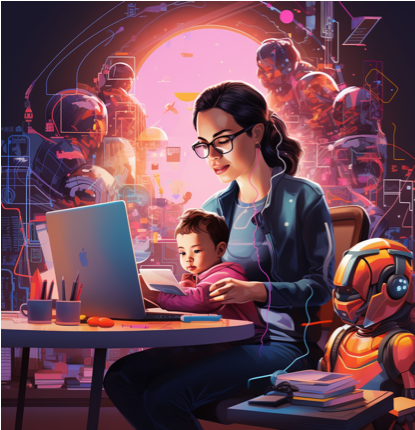Human-Centred AI for social sustainability

DigiSus research platform wishes to share insights from the cross-section of digitalization and sustainability from Tampere University and beyond. Today we have the privilege to publish a blog post by DigiSus management board member and kick-off speaker Kaisa Väänänen.

Artificial Intelligence (AI) is spreading to all almost aspects of our lives. While the promise of the ongoing wave of AI is high, there have been public concerns about the risks of AI to people individually and society at large. Nevertheless, as part of the broad phenomenon of digitalization, AI’s potential contribution to many societal challenges cannot be ignored.
While AI research and development has historically been quite technologically oriented, more humane approaches to AI have become more prevalent in the past few years. Human-Centered AI (HCAI) is a paradigm shift towards designing AI systems that are targeted at diverse user needs and societally beneficial purposes. HCAI is a design approach that emphasises transparency of AI systems, human control and oversight, and gaining deep understanding of the sociocultural contexts in which AI systems will be embedded.
Social sustainability is one of the societal goals that HCAI can contribute to. HCAI has the potential to advance equity, for example by providing access to personalized AI-driven educational resources, finding effective healthcare treatments and procedures, and by offering job matching services. HCAI can support community engagement and personal well-being, for example by employing AI to connect individuals with communities, and by providing affordable access to social services. The promise of HCAI in societal inclusion is also significant by supporting service providers to design customised services for people with special needs.
AI system implementation also carries risks that must be taken seriously. On the individual level, risks include for example bias and privacy breach, On the societal level, there are concerns of, for example, surveillance and erosion of learning skills. Realising AI’s full potential for social sustainability necessitates careful consideration of the inherent risks and ethical use. That’s why human-centered design methods should be rooted in the development of every AI system.
Kaisa Väänänen
Professor, Human-Technology Interaction
View profile